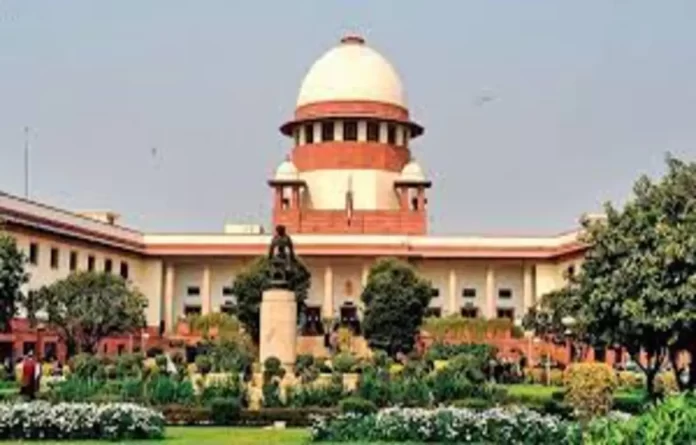The Supreme Court on Tuesday issued notice on a plea challenging Kerala High Court judgment recognising Muslim women’s unconditional right to resort to Khula, a form of divorce in the Muslim personal law.
The bench comprising Justice AS Bopanna and Justice Sanjay Kumar was hearing a challenge to an order passed in a Matrimonial Appeal, as well as to the dismissal of the Review Petition against the order in the Matrimonial Appeal. Notably, Kerala Muslim Jamaat and a private individual filed separate Special Leave Petitions in the Supreme Court challenging the High Court’s judgment.
In the aforesaid appeal, the High Court dealt with a challenge to a divorce decree granted to a Muslim wife under the Dissolution of Muslim Marriages Act. Maintaining that the right to terminate the marriage is a Muslim wife’s absolute right, conferred on her by the Holy Quran and not subject to the acceptance or the will of her husband, the Court overruled the 49-year-old judgment in KC Moyin v. Nafeesa which effectively barred Muslim women from resorting to extrajudicial modes of dissolving marriage.
Furthermore, the High Court underlined that all forms of extra-judicial divorce referred to in Section 2 of the Shariat Act, except Faskh, were available to Muslim women. The court noted that in the absence of any secular law governing khula, it would be valid if conditions such as a declaration of repudiation or termination of marriage by wife, an offer to return dower or any other material gain received by her during marital tie, an effective attempt for reconciliation was preceded before the declaration of khula are satisfied.
The High Court added that if any person wants to contest the effectiveness of khula or talaq, it is open for such aggrieved persons to contest the same in appropriate manner known under law. A review petition was lodged challenging the ruling in matrimonial appeal. The appeal mentioned that if a Muslim wife wishes to terminate her marriage with her husband, she must demand talaq from her husband and on his refusal, move the qazi or Court.
The review petition was dismissed in 2022. On Tuesday, the bench remarked that the will of a wife could not be related to the will of a husband who may not be agreeing to the divorce. The bench reasoned that the right to invoke khula is granted to a Muslim woman by Quran and would be rendered ineffective if subjected to husband’s will.
The High Court further stated that in the absence of any mechanism in the country to recognize the termination of marriage at the instance of the wife when the husband denies to give consent, the court can simply hold that khula can be invoked without the conjunction of the husband.
It noted that khula was in the nature of a permissible action to a Muslim wife who seeks to exercise the option of terminating her marriage.
Challenging the two orders, the present petitioner moved the Supreme Court. Appearing for the petitioner, Senior Advocate Devadatt Kamat submitted that whether the conditions laid down for khula are satisfied has to be seen by Courts. The counsel underscored that the petitioner was not contesting on individual merits of the case, but, it is the law that the petitioner is concerned with, as it is not in consonance with earlier judgments by the top Court and Madras High Court.
Subsequently, the bench issued notice on hearing Kamat and perusing the record.


